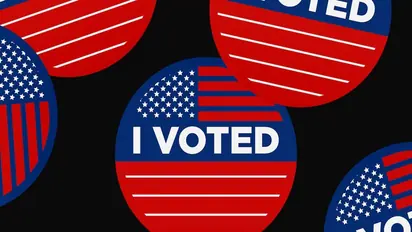US Election 2024: Citadel's Ken Griffin 'Anxious' About Trump's Potential Tariff Plans, Calls Them 'Long, Slippery Slope'

Synopsis
The hedge-fund titan reportedly highlighted his reservations about Trump’s plan to deport millions of undocumented immigrants, and asserted the need for a more nuanced immigration policy
Citadel founder Ken Griffin reportedly said that he is anxious about President-elect Donald Trump’s potential tariff policies, calling them a “long, slippery slope” profitable in the short run but damaging to U.S. firms’ ability to compete in the long run.
“I am very anxious about the president’s willingness to engage in tariffs as a matter of trade policy,” Griffin said at the Oxford Union in the UK, according to a Bloomberg report.
The hedge-fund titan also highlighted his reservations about Trump’s plan to deport millions of undocumented immigrants, and asserted the need for a more nuanced immigration policy. “I do not know how to do that as either a humanitarian justification or economic justification,” Griffin said of mass deportations.
“I think we need to arrive at a more thoughtful immigration policy than just deporting millions of Americans,” he said.
Notably, a slew of economists and market experts too have expressed skepticism on the impact of potential increase in tariffs and mass deportations that could stoke inflation and reduce the pool of cheap labor.
Recently, Greenlight Capital’s David Einhorn reportedly said that he has increased the bets on inflation following Republican candidate Donald Trump’s victory in the recently concluded Presidential elections.
“We will have another inflection up in inflation,” he said at CNBC's Delivering Alpha investor summit last week. “The policy mix being proposed is inflationary and we will see more of that over the next few years.”
Even Federal Reserve officials have been vocal about their skepticism about the impact of tariffs. Minneapolis Fed’s Neel Kashkari recently said that retaliatory tariff increases by other countries in response to potential tariff raises by Trump will create a lot of uncertainty.
“…if somebody imposed a 1% tariff or a 10% tariff, you would think that that would increase prices of those goods either 1% or 10%. That's pretty easy to model, and it shouldn't have an effect [in the] long run on inflation. The challenge becomes, if there's a tit for tat,” Kashkari said on “Face the Nation” on CBS.
After hitting fresh record highs, the markets appear to be taking a breather. The SPDR S&P 500 ETF Trust ($SPY) and the Invesco QQQ Trust, Series 1 ($QQQ) were trading in the red during Tuesday’s pre-market session. However, retail sentiment trended in the ‘neutral’ territories for these assets.
Stay updated with all the latest Business News, including market trends, Share Market News, stock updates, taxation, IPOs, banking, finance, real estate, savings, and investments. Track daily Gold Price changes, updates on DA Hike, and the latest developments on the 8th Pay Commission. Get in-depth analysis, expert opinions, and real-time updates to make informed financial decisions. Download the Asianet News Official App from the Android Play Store and iPhone App Store to stay ahead in business.